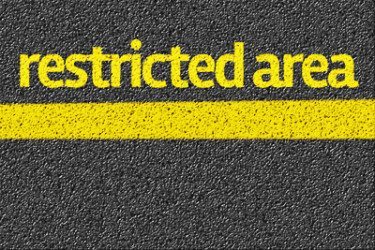Buffer Zone Ordinance To Be Introduced in Madison, Wisconsin
Ald. Lisa Subeck plans to introduce an ordinance that would create a buffer zone of 160 feet around health-care facilities in the city while banning protesters from being within eight feet of a person entering a clinic, punishable by a fine of up to $750.

As the Supreme Court deliberates the constitutionality of a buffer zone separating clients from protesters at a Massachusetts reproductive health-care clinic, a Madison, Wisconsin, alder is preparing to introduce an ordinance that would create a similar buffer zone around clinics in the city.
According to reports, Ald. Lisa Subeck (District 1) plans to introduce an ordinance that would create a buffer zone of 160 feet around health-care facilities in the city while banning protesters from being within eight feet of a person entering a clinic, punishable by a fine of up to $750.
“Every individual trying to obtain medical care should be able to do so with a sense of privacy,” Subeck told Rewire.
The proposed ordinance comes in response to unceasing protests in front of the city’s sole abortion clinic, Planned Parenthood: Madison East, which represents one of only four facilities that provide abortions in the state.
Subeck says that the protesters have become more aggressive in their techniques at the same time that a crisis pregnancy center (CPC) has opened across the street from the clinic. Anti-choice protesters maintain a daily presence outside Madison East, said Subeck. And beyond handing out flyers and attempting to persuade clients to go to the CPC—the Women’s Care Center of Madison, which has ties to local Catholic groups—the protesters also have contacted Madison East patients, referring to them by their first name and describing why their appointment at Madison East was made, and put out descriptions of the women that were unsuccessfully persuaded. “It may or may not be the legal definition of stalking, but it certainly has many elements of stalking,” she said.
Jenni Dye, executive director of NARAL Pro-Choice Wisconsin, told Rewire that her organization investigated CPCs and found that they utilized sidewalk “counselors” as well as a strategy to get women to walk through the doors of the nearest CPC. She believes that the buffer zone would help protect patients’ rights. “We need to make sure that all patients are given opportunity to access care,” said Dye.
While there have been serious incidents of terrorism at clinics in Wisconsin and across the nation, Subeck says the ordinance is more focused on the “day-to-day experience” of women seeking reproductive health care. Subeck also believes that the ordinance “strikes the right balance” between protecting First Amendment rights and the right to privacy of the patient to access medical care.
On Wednesday, the Wisconsin State Journal reported that the ordinance had 11 co-sponsors, but Subeck told Rewire on Thursday that it now has 14 out of the 20 alders. She said she will introduce the ordinance at the next city council meeting on Tuesday, and she expects the ordinance will be referred to a committee before it is taken up for a vote by the council.
